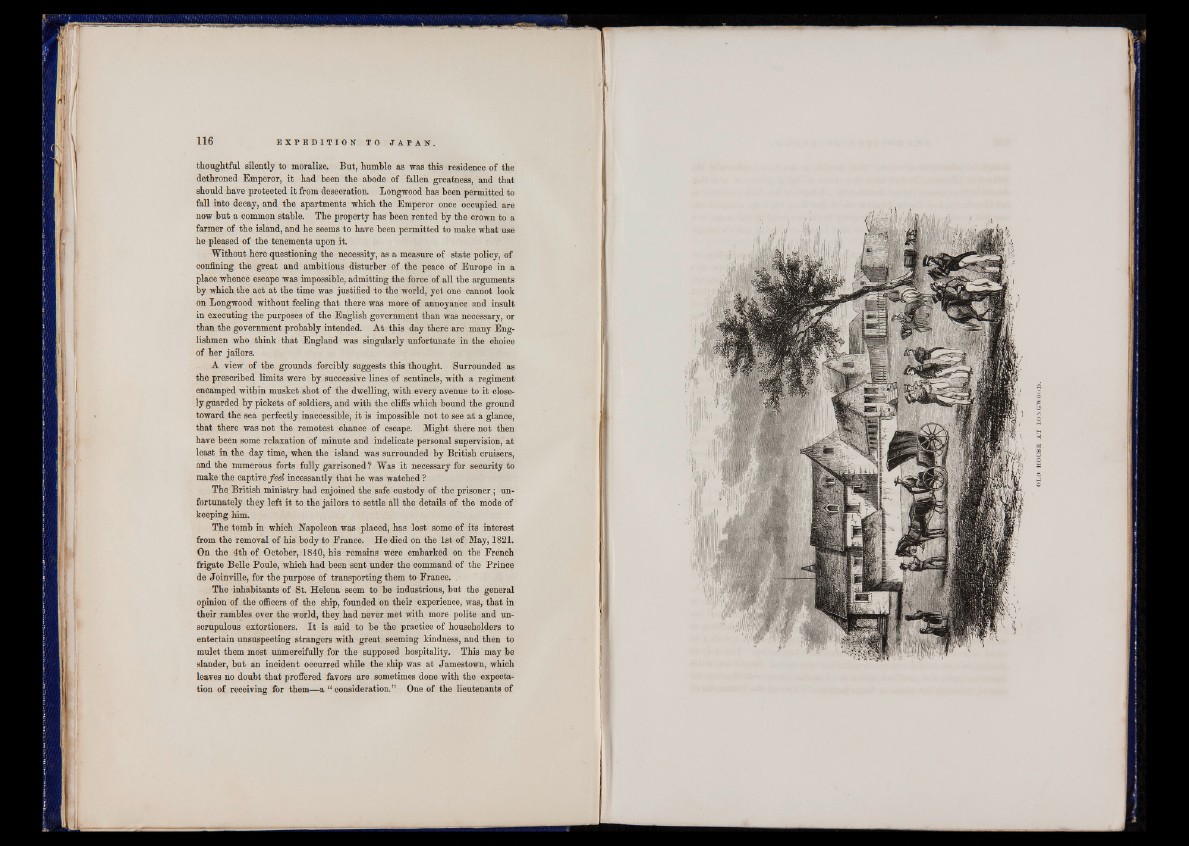
thoughtful silently to moralize. But, humhle as was this residence of the
dethroned Emperor, it had been the abode of fallen greatness, and that
should have protected it from desecration. Longwood has been permitted to
fall into decay, and the apartments which the Emperor once occupied are
now hut a common stable. The property has been rented by the crown to a
farmer of the island, and he seems to have been permitted to make what use
he pleased of the tenements upon it.
Without here questioning the necessity, as a measure of state policy, of
confining the great and ambitious disturber of the peace of Europe in a
place whence escape was impossible, admitting the force of all the arguments
by which the act at the time was justified to the world, yet one cannot look
on longwood without feeling that there was more of annoyance and insult
in executing the purposes of the English government than was necessary, or
than the government probably intended. At this day there are many Englishmen
who think that England was singularly unfortunate in the choice
of her jailors.
A view of the grounds forcibly suggests this thought. Surrounded as
the prescribed limits were by successive lines of sentinels, with a regiment
encamped within musket shot of the dwelling, with every avenue to it closely
guarded by pickets of soldiers, and with the cliffs which bound the ground
toward the sea perfectly inaccessible, it is impossible not to see at a glance,
that there was not the remotest chance of escape. Might there not then
have been some relaxation of minute and indelicate personal supervision, at
least in the day time, when the island was surrounded by British cruisers,
and the numerous forts fully garrisoned? Was it necessary for security to
make the captive feel incessantly that he was watched ?
The British ministry had enjoined the safe custody of the prisoner; unfortunately
they left it to the jailors to settle all the details of the mode of
keeping him.
The tomb in which Napoleon was placed, has lost some of its interest
from the removal of his body to France. He died on the 1st of May, 1821.
On the 4th of October, 1840, his remains were embarked on the French
frigate Belle Poule, which had been sent under the command of the Prince
de Joinville, for the purpose of transporting them to France.
The inhabitants of St. Helena seem to be industrious, but the general
opinion of the officers of the ship, founded on their experience, was, that in
their rambles over the world, they had never met with more polite and unscrupulous
extortioners. I t is said to be the practice of householders to
entertain unsuspecting strangers with great seeming kindness, and then to
mulct them most unmercifully for the supposed hospitality. This may be
slander, but an incident occurred while the ship was at Jamestown, which
leaves no douht that proffered favors are sometimes done with the expectation
of receiving for them—a “ consideration.” One of the lieutenants of
OLD HOUSE AT LONGWOOD.